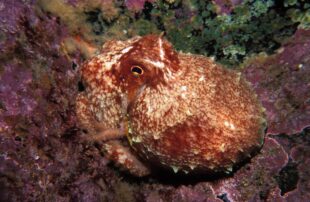Today the first batch of marine survey data collected by the Joint Nature Conservation Committee was released under an Open Government Licence. These data will support furthering our understanding of the species which occur around in the seas around the United Kingdom.

Between 1990 and 1998 JNCC led an extensive review of the marine habitats and species around the United Kingdom. This review, known as the “Marine Nature Conservation Review” (MNCR), was initiated to:
- provide a comprehensive baseline of information on marine habitats and species around the UK
- support coastal zone and sea-use management and
- contribute to the identification of areas of marine natural heritage importance
A huge volume of data was collected both through new surveys and the collation of existing material. While these data have been accessible JNCC is now making this information available under an Open Government Licence. The first batch of these data, containing the results of more than 250 separate surveys is now available. The data from each survey include measurement of a huge number of physical characteristics of each area, the species that were found there including their abundance and the overall community types.
The data form one of the key sources underpinning our knowledge of marine life found on the beaches and shallow seas around the United Kingdom. They have underpinned the creation of a definition of marine communities and the selection of many of the near shore protected areas. JNCC anticipates that these data could also be applied to areas such as:
- Developing predictive models – there have been very significant advances in modelling techniques over the last couple of decades and the MNCR data combined with existing, and emerging, sources of physical data, including aerial / satellite based sources, may provide a very good basis to develop models to identify the key drivers of species distributions.
- Detecting change and potential causes of this – having an extensive baseline collected using a standard methodology provides a really important resource when assessing overall change in the marine environment. The fact that much of this baseline was collected twenty five years ago provides a useful timescale to begin to look for changes and potential causes of any change.
- Supporting more efficient regulation – if patterns can be identified within the data the results may well give us more insight into the factors that are having the most impact which may also help simplify and shape the sort of regulation needed within the marine environment.
Please take a look at the data released by JNCC. We would be very interested in any ideas you have around how they could be used and are happy to answer any questions you may have.
(Image: Kate Northern, ©JNCC)
Updated 16/12/15 11:35 to make minor corrections
Recent Comments